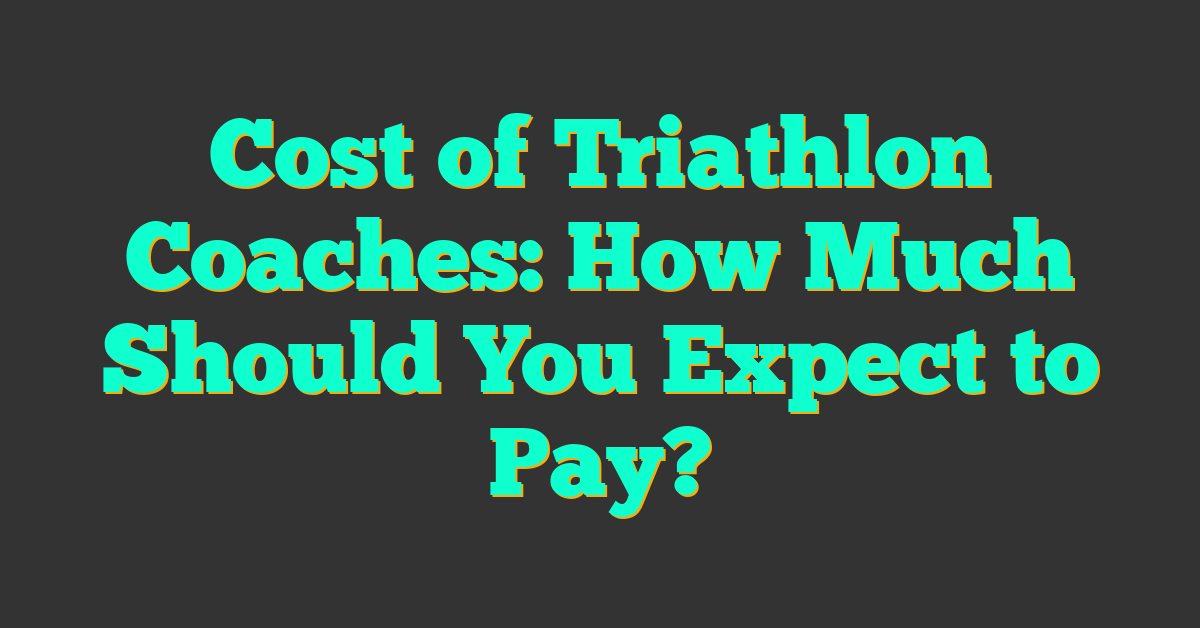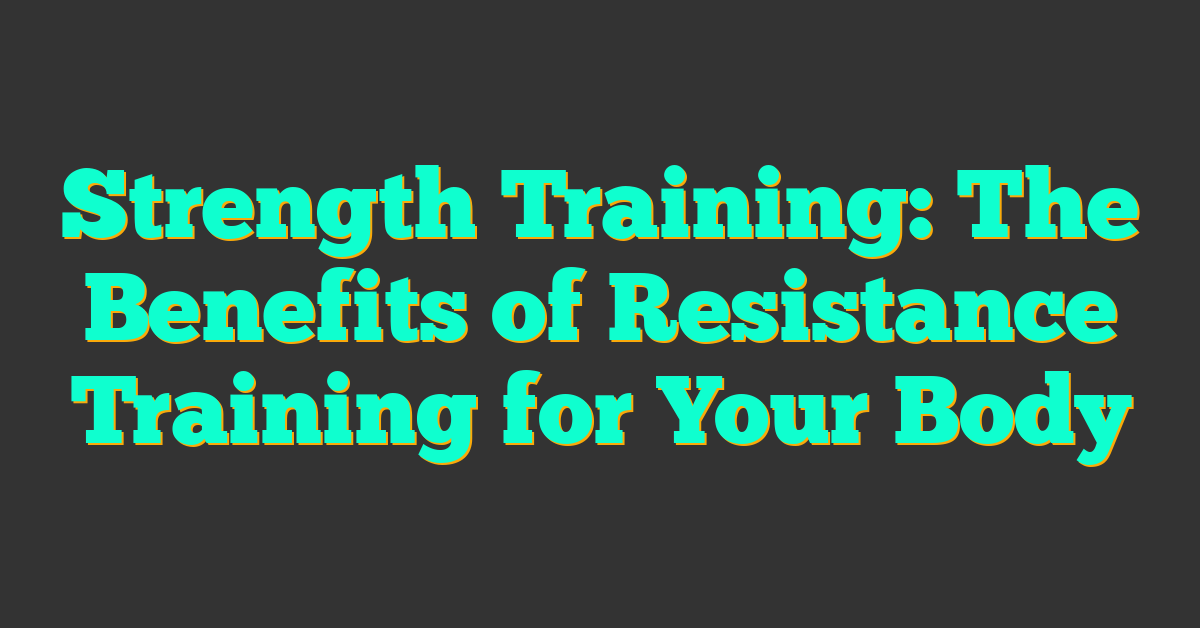If you’re a triathlete looking to improve your performance, hiring a coach might be the best investment you can make. A triathlon coach can help you develop a training program tailored to your specific needs, provide guidance and feedback, and help you stay motivated throughout your journey.

However, one of the biggest questions when it comes to hiring a coach is how much it will cost. The cost of a triathlon coach can vary widely depending on a number of factors, including the coach’s experience and qualifications, the level of interaction you want, and the services provided. In this article, we’ll take a closer look at the cost of triathlon coaches and what you can expect to get for your money.
Key Takeaways
- Hiring a triathlon coach can be a great investment in your success as a triathlete.
- The cost of a triathlon coach can vary widely depending on a number of factors, including the coach’s experience and qualifications.
- When choosing a triathlon coach, it’s important to consider factors such as their coaching style, communication skills, and availability.
Understanding Triathlon Coaching Costs


If you’re looking to hire a triathlon coach, understanding the costs involved is an important first step. In this section, we’ll discuss some of the factors that influence triathlon coach cost and compare the costs of club vs. personal coaches.
Factors Influencing Triathlon Coach Cost
Several factors can influence the cost of a triathlon coach. One of the most significant factors is the coach’s level of experience and certification. Coaches with more experience and higher levels of certification may charge more for their services.
Another factor that can affect the cost of a triathlon coach is the level of interaction you want. For example, if you’re looking for one-on-one coaching sessions, you can expect to pay more than if you’re just looking for basic online virtual guidance.
Additional expenses such as training plans, equipment, and race fees may also be included in the cost of coaching. Be sure to clarify what is included in the cost of coaching before signing up with a coach.
Comparing Costs: Club vs. Personal Coaches
If you’re looking to save money on triathlon coaching, you may want to consider joining a triathlon club. Club coaches may offer coaching services at a lower cost than personal coaches since the cost is shared among club members.
However, if you’re looking for more personalized coaching, a personal coach may be a better option. Personal coaches can tailor their coaching to your specific needs and goals, which can lead to better results.
In the United States, the average cost of triathlon coaching is around $160 per month according to USAT [1]. However, prices can range from as low as $29 per month for basic online virtual guidance to as high as $300 per month for one-on-one sessions [1].
In Australia, the cost of triathlon coaching varies depending on the level of service. For example, Triathlon Australia offers coaching packages ranging from $195 to $495 per month [2].
Overall, the cost of triathlon coaching can vary depending on several factors. By understanding these factors and comparing the costs of different coaches and clubs, you can find a coaching option that fits your needs and budget.
[1] Source: http://alltriathlon.com/how-much-does-a-triathlon-coach-cost/
[2] Source: https://www.triathlon.org.au/Coaching/Coaching-Packages.htm
The Role of a Triathlon Coach
https://www.youtube.com/watch?v=cHfILOW-Na4&embed=true
Triathlon coaches play a crucial role in helping athletes of all levels achieve their goals. They provide personalized training plans, ongoing feedback and communication, and nutrition and lifestyle guidance.
Training Plan Development
One of the most important roles of a triathlon coach is to develop a personalized training plan that is tailored to your specific needs and goals. This plan will take into account your current fitness level, your race schedule, and any other factors that may impact your training.
Your coach will work with you to develop a plan that includes a balance of swim, bike, and run workouts, as well as strength training and recovery days. They will also help you set realistic goals and adjust your plan as needed to ensure that you are making progress and staying on track.
Ongoing Feedback and Communication
In addition to developing your training plan, your coach will provide ongoing feedback and communication to help you stay motivated and make progress. This may include regular check-ins via email or phone, as well as in-person meetings or training sessions.
Your coach will also provide feedback on your workouts, helping you to identify areas where you can improve and providing guidance on how to do so. They will celebrate your successes with you and help you overcome any obstacles that may arise.
Nutrition and Lifestyle Guidance
Finally, a triathlon coach can provide valuable guidance on nutrition and lifestyle factors that can impact your performance. They can help you develop a nutrition plan that supports your training and racing goals, as well as provide advice on hydration, supplements, and recovery strategies.
« Cost of Triathlon: How Much Does It Really Cost to Compete?
Crappy Workout: Reasons Why You’re Not Seeing Results »
Your coach can also help you manage other lifestyle factors that can impact your training, such as sleep, stress, and work-life balance. By taking a holistic approach to your training, your coach can help you achieve your goals while also maintaining a healthy and balanced lifestyle.
In summary, a triathlon coach plays a critical role in helping you achieve your goals and become a better athlete. They provide personalized training plans, ongoing feedback and communication, and nutrition and lifestyle guidance to help you reach your full potential.
Choosing the Right Triathlon Coach
https://www.youtube.com/watch?v=OroWUgO5SYk&embed=true
If you are considering hiring a triathlon coach, there are several factors to consider to ensure that you choose the right coach to help you achieve your goals. Here are some things to keep in mind when selecting a coach.
Certifications and Experience
When looking for a coach, it is important to consider their certifications and experience. Look for a coach who is certified by a reputable organization such as USA Triathlon. A coach with a certification from an accredited organization has demonstrated a certain level of knowledge and expertise in the field.
It is also important to consider the coach’s experience. An experienced coach will have worked with a variety of athletes and will have a better understanding of how to tailor their coaching approach to meet the needs of each individual athlete.
Coaching Style and Philosophy
Every coach has their own coaching style and philosophy. Some coaches may be more hands-on, while others may take a more hands-off approach. It is important to find a coach whose coaching style and philosophy aligns with your own goals and preferences.
Consider what type of coaching approach you respond best to. Do you prefer a coach who is more motivational and positive, or do you respond better to a coach who is more direct and critical? Finding a coach whose coaching style and philosophy aligns with your own can make a big difference in your training experience.
Location and Specialties
When choosing a coach, it is important to consider their location and specialties. If you prefer to work with a coach in person, look for a coach who is located in your area. If you prefer to work with a coach remotely, look for a coach who offers online coaching services.
Consider the coach’s specialties as well. Some coaches may specialize in coaching athletes for a specific type of race, such as Ironman or Olympic distance triathlons. Others may specialize in coaching athletes of a certain skill level or age group.
By considering these factors, you can find a triathlon coach who is the right fit for you and can help you achieve your goals.
Training Tools and Resources
https://www.youtube.com/watch?v=m6W1EHi08dE&embed=true
When it comes to triathlon training, having the right tools and resources can make all the difference. Here are some options to consider:
Technology for Training and Analysis
Training programs like TrainingPeaks provide an online coaching platform that allows you to track your workouts, analyze your data, and communicate with your coach. This platform also offers a range of plans to suit different budgets and goals.
If you prefer an online training platform that includes coaching, MyProCoach offers customized training plans, as well as access to a coach for questions and feedback. You can also track your workouts and progress through their platform.
To track your progress during workouts, a triathlon watch can be a useful tool. These watches can track your heart rate, distance, and pace, among other metrics. Some popular options include the Garmin Forerunner 945, Polar Vantage V2, and Suunto 9 Baro.
For more advanced training, you may want to consider using a heart rate sensor or power meter. These tools can provide more accurate data on your effort level and help you train more effectively. Some popular options include the Wahoo Tickr, Garmin HRM-Pro, and Stages Power Meter.
Additional Coaching Services
In addition to online coaching platforms, some coaches offer additional services to help you train and perform your best. These services may include bike fitting, nutrition coaching, and mental skills training.
Bike fitting can help you optimize your position on your bike for maximum comfort and efficiency. Many coaches offer this service either in-person or remotely.
Nutrition coaching can help you fuel your body properly for training and racing. This may include personalized meal plans, supplement recommendations, and guidance on hydration.
Mental skills training can help you develop strategies for staying focused, motivated, and confident during training and racing. This may include visualization exercises, goal setting, and stress management techniques.
Overall, investing in the right tools and resources can help you train more effectively and achieve your goals. Consider your budget and goals when choosing which tools and services to use.
Maximizing Your Investment
https://www.youtube.com/watch?v=Iy2ZRMdkkXo&embed=true
When you invest in a triathlon coach, you want to make sure you get the most out of your investment. Here are some ways to maximize your investment in personalized coaching.
Setting Goals with Your Coach
One of the most important things you can do with your coach is to set goals. Your coach can help you set realistic goals based on your abilities and time constraints. These goals should be specific, measurable, achievable, relevant, and time-bound (SMART).
Once you have set your goals, your coach can help you create a plan to achieve them. This plan should include a training schedule, nutrition plan, and recovery plan. By working with your coach to set goals and create a plan, you will be more likely to achieve your goals and get the most out of your investment.
Measuring Progress and Adjusting Plans
To make sure you are making progress towards your goals, you need to measure your progress regularly. Your coach can help you measure your progress by using filters such as heart rate, power, pace, and perceived exertion. By measuring your progress, you can adjust your plan as needed to ensure you are on track to achieve your goals.
Your coach can also help you adjust your plan based on your progress and any other factors that may impact your training, such as injury or illness. By adjusting your plan as needed, you can continue to make progress towards your goals and get the most out of your investment in personalized attention.
In addition to working with your coach, you may also want to consider attending training camps or taking courses through Ironman U. These can be great ways to learn new skills and techniques, meet other triathletes, and get additional support and guidance from experts in the sport of triathlon.
By following these tips and working closely with your coach, you can maximize your investment in personalized coaching and achieve your goals, whether you are training for your first race or looking to improve your performance in your next Ironman.
Frequently Asked Questions
https://www.youtube.com/watch?v=13Bjb2dsPxk&embed=true
What factors should I consider when choosing a triathlon coach?
When choosing a triathlon coach, there are several factors to consider. You should consider the coach’s experience, credentials, and coaching philosophy. It is also important to choose a coach who understands your goals, abilities, and limitations.
How much does a typical triathlon coach charge for their services?
The cost of a triathlon coach varies depending on the level of interaction you want and the coach’s experience and credentials. According to Triathlon Budgeting, on average, triathlon coaching costs around $160/month. However, the price can range from as low as $29/month for basic online virtual guidance to as high as $300/month for one-on-one sessions.
What qualifications should a good triathlon coach have?
A good triathlon coach should have experience in coaching triathletes, as well as a solid understanding of the sport and the unique demands it places on the body. Look for a coach who has certifications from reputable organizations like USA Triathlon or the International Triathlon Union.
Can triathlon coaching be done virtually, or is in-person training necessary?
Triathlon coaching can be done virtually, and many coaches offer online coaching services. However, some athletes may prefer in-person training sessions, especially for disciplines like swimming where technique is important.
What additional services, like nutrition planning, do triathlon coaches offer?
Many triathlon coaches offer additional services like nutrition planning, strength training, and mental coaching. These services can help you improve your performance and achieve your goals.
Are there specialized coaches for different triathlon disciplines, such as swimming?
Yes, there are specialized coaches for different triathlon disciplines, such as swimming. Look for a coach who has experience coaching athletes in the discipline you want to improve in.










